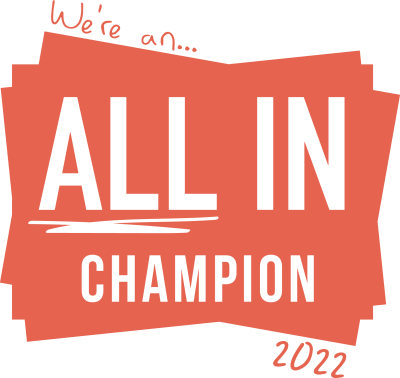WHY IS THE AD INDUSTRY STILL NOT A JOB FOR GROWN-UPS?
Ayesha Walawalkar, Chief Strategy Officer at MullenLowe Group UK, writes in Campaign on The Advertising Association’s ‘All In’ Action Plan and how it might just encourage older people in our industry not to go off and find a ‘proper job’ elsewhere.
When I started in this business (last century) there was a phrase we often used to describe the job we did. It was: “This is not a job for grown-ups.”
That phrase gleefully encapsulated a lifestyle of 14-hour days split roughly 50/50 between agency and pub, and an environment that was rambunctious, slightly chaotic and resolutely un-serious (“It’s not brain surgery love; it’s advertising”). We believed at the time that all of the above was a prerequisite for creativity.
This was, of course, long before #metoo, and sexism and racism and pretty well every other kind of ‘ism’ were also part of the fun. And if you didn’t see the funny side, there were always plenty of others who’d be happy to replace you. Hey ho for the good old days.
But central to that idea of “not a job for grown-ups” was the belief that we couldn’t do this forever. That at some point we’d have to leave and find a proper job. And many of us did.
In retrospect, it’s easy to see why the working culture of our industry limited its demographics: it simply did not allow for any other commitments. If you had encumbrances like a child, then having a partner or a nanny at home to look after them was non-negotiable, since you were never home yourself during the hours of daylight.
Unsurprisingly, the only people in the agency who were aged over 40 back then were (male) founders and senior directors, who could afford such luxuries.
Fast-forward to the time of lockdowns, BLM and #metoo, and much in our working environment has changed beyond recognition. London has evolved from the monoculture it was and become a magnet for creative talent from around the world.
In the process we’ve realised that culturally diverse perspectives make our work better, our insights less parochial and our creative output more varied, authentic and exciting.
We’re belatedly taking seriously the need to drive more diversity at all levels and to challenge the behaviours and attitudes that denigrate and devalue people whose experience differs from our own.
We’ve been forced to find ways of working that do not rely on long hours spent away from home and family each day. Through desire or necessity we have made changes.
And yet it would seem that our industry remains stubbornly not for grown-ups. With less than 20% of our workforce aged 45+ (versus 44% of the working population), it’s fair to say we have a problem.
The Advertising Association has just launched phase two of its ‘All In’ Action Plan to improve diversity, and this time around the focus is on improving the experience and representation of women, Asian talent and – the biggest gap – older talent.
As someone who ticks all three boxes, I don’t know whether to feel loved or afraid. But at least I am well placed to assess the potential effectiveness of the actions the All In team are proposing.
Foremost among those actions is embedding flexible working practices into our organisations.This means not just the flexibility to work from home if desired, but offering all employees flexible days and hours, enabling them to adjust their working lives around commitments like childcare or caring for elderly parents, or even just to focus some of their energies on personal interests and business ideas.
Research suggests this approach makes people happier, more productive and more likely to stay and build a career. At MLG we’re working on ways to offer our people maximum flexibility and encouraging senior managers to lead by example, so that policy becomes reality.
But if we want things to change quickly we also need to think radically about how to bring mature entrants into – or back into – our industry. We’re in the midst of a talent crunch, yet most of us do not even consider talented people who are looking at comms as their second career.
Several friends and colleagues of mine left our industry in the past few years and retrained as educators or started their own businesses. No one in their new roles assumed that experience in advertising disqualified them from succeeding in another field.
Why then would we imagine that mid-career switchers could not build equally successful new futures with us?
Kudos to St Luke’s for recently hiring a mature intern. Now, how can the rest of us entice more people into jobs for grown-ups?
*Originally posted in Campaign.
